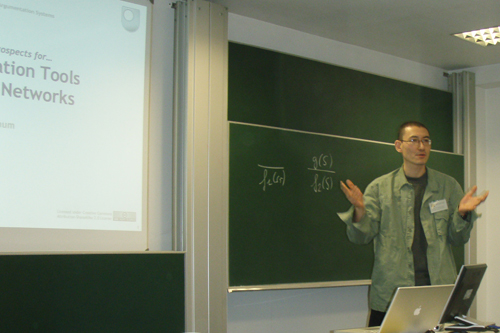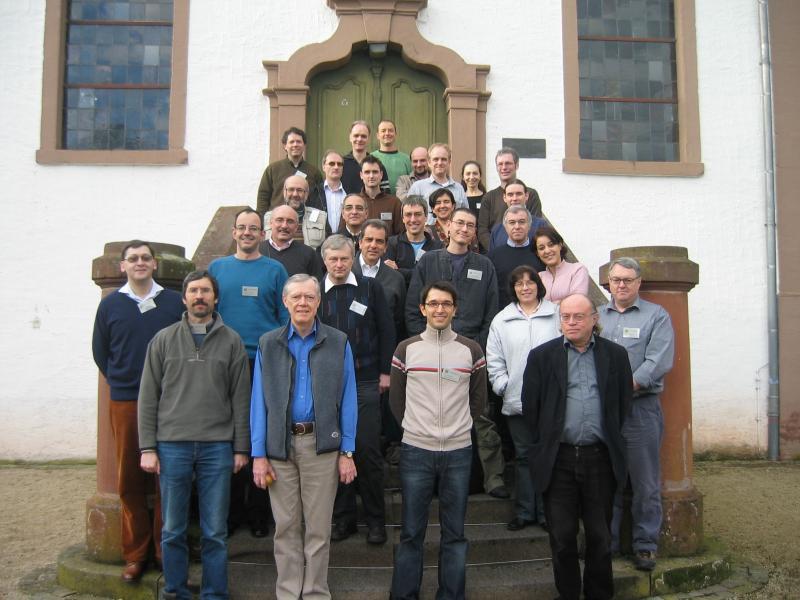I’ve just returned from an intensive ‘Perspectives’ workshop at Schloss Dagstuhl, 2.5 hours out of Frankfurt. This brought together European and US leaders in both argumentation theory and systems development to debate the state of the art, and the future challenges to delivering argumentation-support technology on the web and other intelligent systems.
We worked in thematic groups around:
* Argumentation and the Semantic Web
* Argumentation and Multi-agent Systems
* Argumentation and Decision Support in Application Areas
* Argumentation and Social Networks
I introduced the social networks theme, which is exploring the intruiging intersection of the Web 2.0 paradigm and argumentation, which raises both tensions and opportunities (see slides and paper below)
Since we practise what we preach, both Compendium and Cohere were in action as a medium for real time/asynchronous mapping of deliberations, published on the web (see below). The thematics groups are now working on more fully developed statements, to be published later this year.
To our knowledge, the only analysis to date of the Web 2.0/Argumentation space is our paper to be presented at the 2nd International Conference on Computational Models of Argument, to be held in Toulouse in May. This work describes the rationale behind the Cohere web application, developed in the Hewlett Foundation-funded Open Sensemaking Communities project, part of the OpenLearn initiative here at the OU.
Related Links:
- Dagstuhl Perspectives Workshop: Theory and Practice of Argumentation Systems
- Social Networks and Argumentation Tools: Preliminary Thoughts [my slides]
- Compendium + Cohere dialogue maps
- Cohere: Towards Web 2.0 Argumentation (COMMA 2008)
- Cohere web application
- Open Sensemaking Communities project



